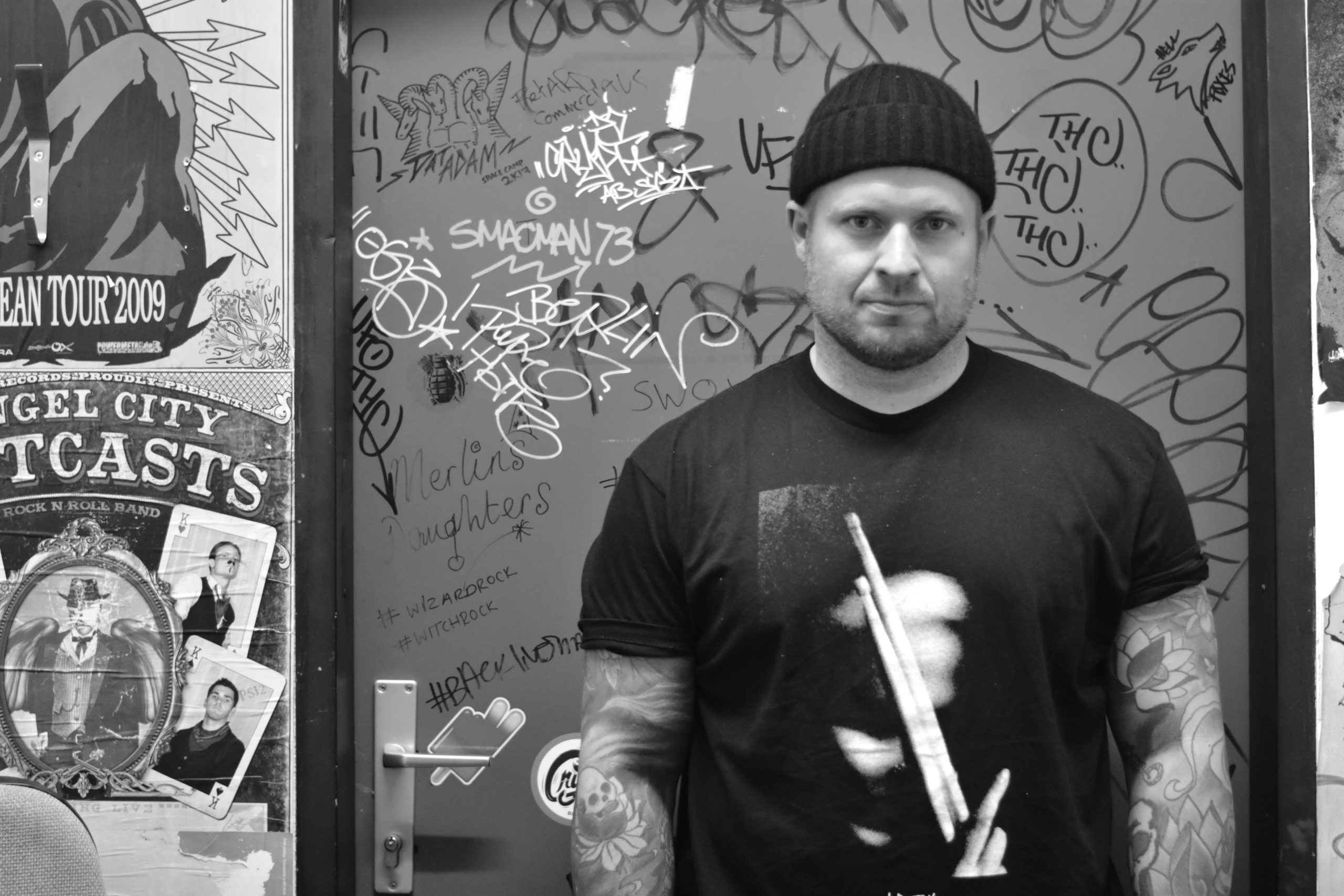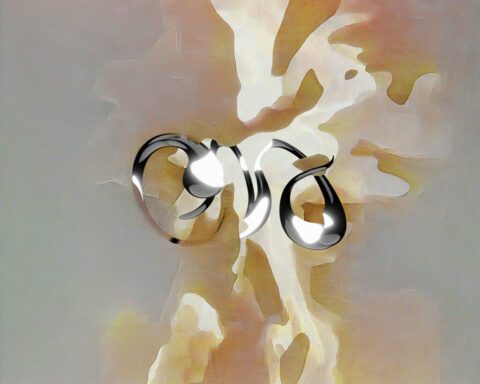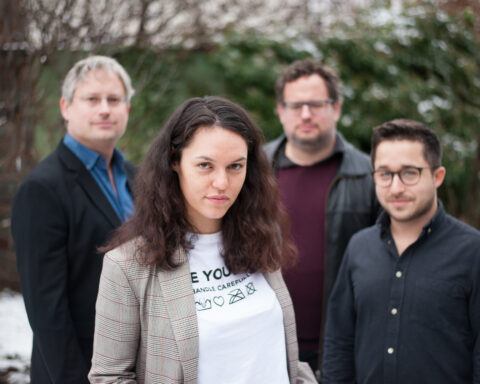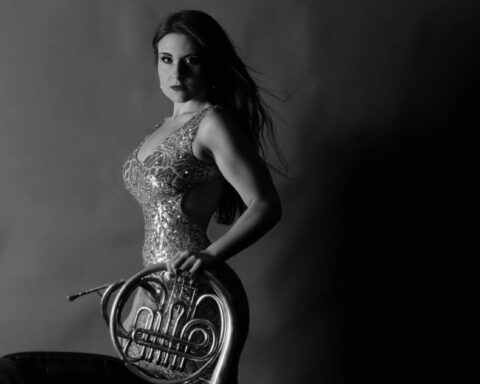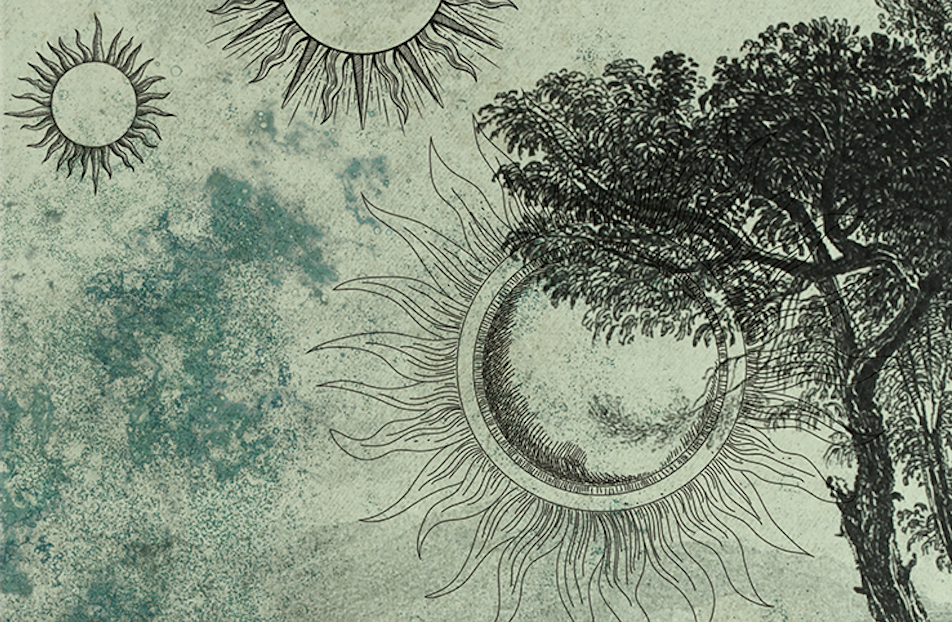Before their performance at the @Arena Wien, the vocalist of Cult of Luna, Johannes Persson, took some time to talk to us about their latest record, analyse some lyrics and discuss the best aspects of playing live. Read all about it below!
Can you tell us something about the reception of the new record?
I mean, it’s a little hard to answer a question like that. Very often when people talk to you, they like what you’ve done, so like, 100% of the people you talk to think it’s good, you never talk to the people that think it sucks. Very few people approach me and go „hey, I don’t really like it“. So it’s impossible to say. People are nice when I talk to them (laughs).
What can you tell us about this whole brooding theme that the record has, the darker artwork…how do they fit together?
Alright, we need to start from the beginning if we’re gonna talk about that. Previously –I would say from the second album up until Mariner (Indie Recordings, 2016)– when we started working on an album, we start off deciding a theme or a story or a narrative and then kinda work ourselves with that in mind: „okay, this is the story we want to tell. How do we do it in the writing, how do we do it in the production, in the arrangements, in the graphical profile, the videos…“, everything. We had a pretty much straight line when it comes to ideas and the stories that we were working on for, like, 15 years. But this album I wanted to do –or we wanted to do it very differently, so instead of starting with a story, we just wrote whatever popped in our head, and afterwards I had to analyse the lyrics, find what it was all about and from there, kinda create some kind of theme. And when it came to the artwork, we understood that there’s a lot of death in there, like, this strive for something secure…home was very important, what is home? Not only in a geographical sense but also, like, more about an emotional platform. And out of that we kinda built a theme around that and Erik has done the artwork since 2003/2004. He had to interpret that and he came out with a few drafts and we didn’t really feel like they reflected what we were about and then he finally came up with the cover of the album and we thought that it was perfect for so many reasons, and while we talked about home, there were a lot of pictures from the area where we’re from and also where we recorded the album. I mean, there was also this secure environment, like, home is where my friends can be there too.
That’s very interesting and unexpected. We also wanted to discuss some of the tracks a little bit more in detail. What can you tell us about „Nightwalkers“? It has this sort of apocalyptic lyrics.
Yeah. I mean, first of all that song took forever to write. Very often things, you know, go very quickly but I struggled with that song for maybe one and a half years before we could…with that it doesn’t mean that I spent one and a half years just with that, it’s not like that, but it took me a while to kinda tie it together. I think that’s one of the…I wouldn’t say it is apocalyptic at all to be quite honest (laughs). That song is probably the one about home more than any other. It’s about understanding the call of your inner being, of where actually you belong. So with that in mind, if you re-read, you’ll probably find other ways to interpret that.
What about „Inland Rain“?
Yeah, like I said, some lyrics have a road to them, like „okay this is what I want to tell with this“. But in the beginning I just threw whatever came from my mind. I think „Inland Rain“ is probably…I would guess…you know, in the inland where people work, people still live– not many of them, my father is one of them. Those small communities, they die out, like, they find old people dead in their house. Nobody’s moving there, only people moving out and just dying and how people used to live was very harsh, it was a very harsh environment. You know, when you are very dependent on getting the crops, you know, it was hard work in the forest, hard work at the rivers, they did rafters and dams. I think we are honouring people that used to live there and actually lived off that land. And it was harsh, it’s still harsh.
Moving onto a different subject, what’s the appeal of Post-Metal sound as opposed to regular Metal for you?
That’s…you’re calling it Post-Metal, I don’t call it that. I just write music I like, I don’t care about anything. I have nothing against it at all, but it’s a label that’s been put on us but not because we…I mean, we just write. And when we started this band, there were so many ways of trying to describe music: apocalyptic, dark, drone, sludge (blows raspberry) vampiric. So it’s a weird question because it’s not like I pick a genre, like „this is what I wanna do“.
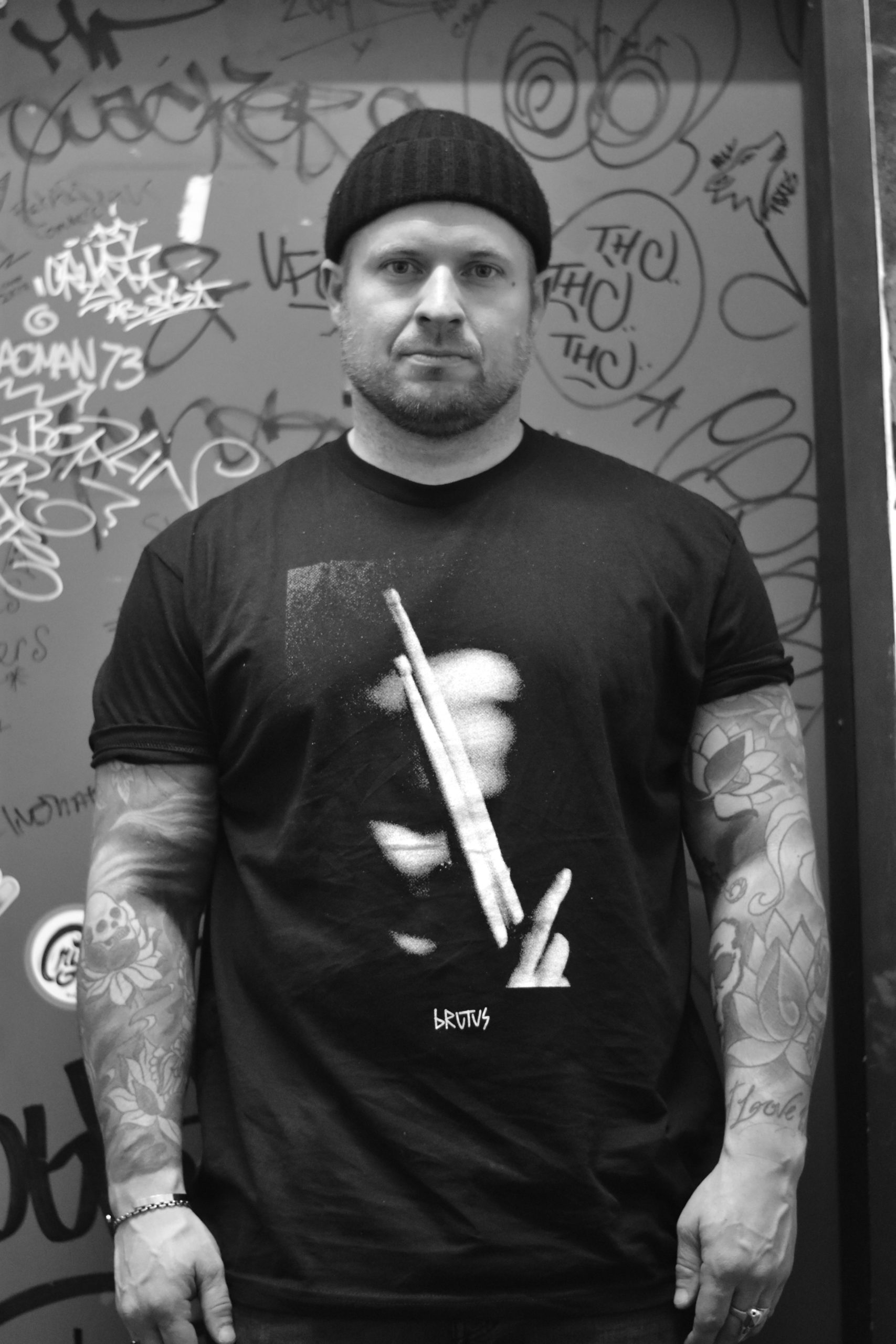
Your line-up changes sort of frequently. Does this affect your songwriting process?
It doesn’t change that much, though. It changed every now and then. The only problem we have is getting everybody on the road at the same time. So we have like, different people that we can use but the core of the band is the same. I mean, yeah. Erik has left the band and there were other changes seven, eight years ago. I mean, it’s a long time, so it doesn’t feel like much happening. We are a very solid group of friends doing stuff together.
How do you bring your epic sound to the stage? What elements are important for you to bring to a live performance?
I leave all the technical aspects to our crew. I just gotta play the songs, I know it. They have a tough job because there are so many things going on; they have to decide…it’s always a compromise. They can’t do exactly what’s on the album. For me, it’s just about being there emotionally, connect with the audience. That’s it. Connecting with the audience is the most important thing. It’s a very abstract thing, because in some shows you just don’t connect and in some shows, you really are walking on clouds. And it’s hard to say what’s different between shows, it just happens.
So, would you say that you prefer playing live than being in the studio?
Yeah, I hate being in the studio.
You also seem to be inspired by movies. For example with Vertikal (Indie Recordings, 2013), which took some influences from Metropolis. Are there any other movies you would like to revisit to inspire your work?
No. I don’t know. When it came to that, the album, it was just about the graphical style of it, Fritz Lang and German expressionism. It’s not a theme album, or trying to do, like, a soundtrack to it. We were genuinely interested in that style, Italian futurism in the 1920s, Fritz Lang, expressionism, so no. But I love movies though. I work with them.
What is the appeal of movies as a creative influence for you personally?
It’s one form of art that I enjoy. You always get inspired by everything, I mean, it’s inevitable: you read stuff, you watch stuff and you can’t make a conscious decision of „ok look, this is what I’m going to do“. Everything gets into you and filters around and stays, yeah.
Regarding the future outlook, what is next for Cult of Luna?
Now we’re gonna do a US Tour. We’re going to Mexico for the first time. And probably some festivals and we’re still discussing what we’re gonna do in the fall or something, so we have things planned basically for one year. Nothing is official but it will be, sooner or later (laughs).
You get the last words, of course.
I suck with last words. It’s just great being back in Vienna, we’ve played this place twice or three times before, but that was the small venue. So it’s very encouraging and inspiring to see that things are growing, that people are getting into what we do, so it’s been a good pre-sale, so I can’t wait to see if the Austrians can overdo the Germans last night, they did a great job. That was amazing. We’ll see! (laughs).
Political Sciences BA and Mexican-born expat, trying their best to hold onto their filmmaking dreams. I turn to music and films when existence becomes unbearable
